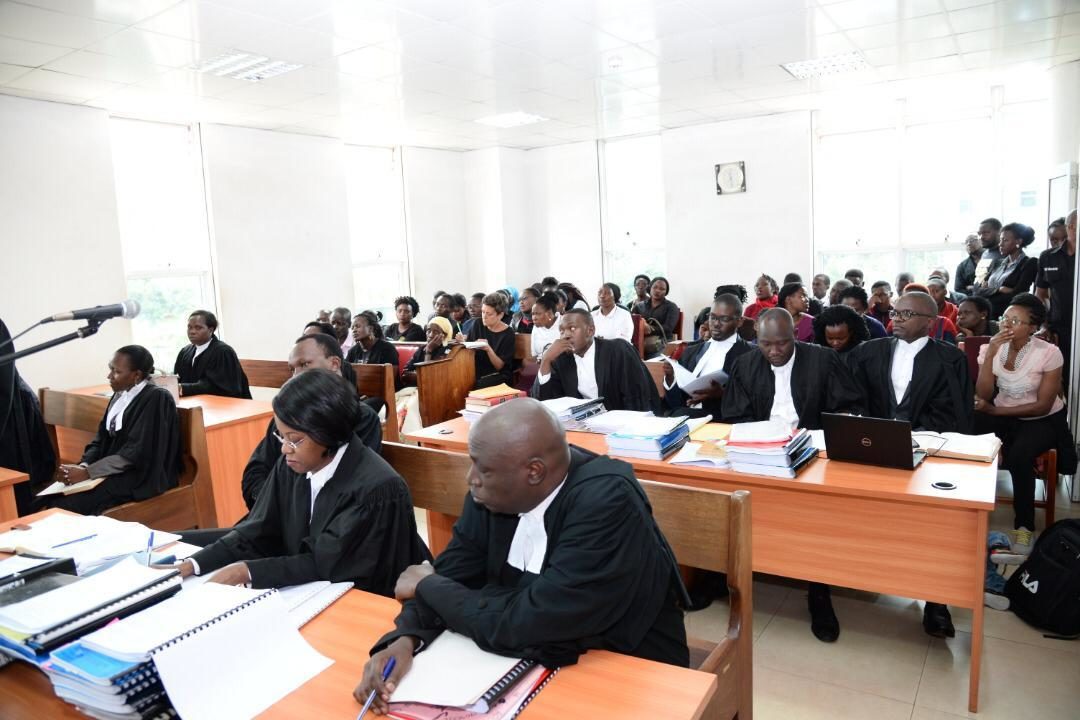(KAMPALA) Today a civil society coalition of more than 40 health rights organizations welcomed the start of Constitutional Court’s hearing of Petition 16 of 2011. This health rights case, filed on March 4, 2011 by the Centre for Health, Human Rights and Development (CEHURD), was triggered by the preventable deaths of Jennifer Anguko and Sylvia Nalubowa, two women who died while giving birth. The activists claim that Uganda’s government is failing to fulfill fundamental rights guaranteed under the Constitution, resulting in an epidemic of preventable deaths of women. Constitutional Court dismissed the petition in 2012, on the grounds that the Court lacked standing to hear the case on its merits. CEHURD appealed to the Supreme Court (Constitutional Appeal No. 1 of 2013) and on September 30 2015 the Supreme Court ruled that Constitutional Court’s dismissal was incorrect, and must hear the petition.
More than 16 women die daily in Uganda from preventable causes including hemorrhage, sepsis, unsafe abortion, obstructed labor, and pre-eclampsia. There has been no statistically significant decrease in maternal mortality in Uganda for the last eight years (source: Uganda Demographic and Health Survey 2016 Key Indicators Report, page 58). Uganda’s severely high rates of teenage pregnancy also contribute to preventable maternal deaths—25% of young women 15-19 in Uganda is pregnant or a mother, one of the highest rates in sub-Saharan Africa, a statistic that has remained unchanged since 2006 (source: Uganda Demographic Health Survey, 2016).
The primary defense argued by Government over the last 8 years the case has been in Court is that Uganda is too poor to fight maternal mortality effectively. Recent evidence contradicts that claim: the FY2019/20Appropriations Bill contains a 20.9% expansion in the overall budget compared with FY2018/19. The increase is largely for Security (increasing from 6.3% to 9.3% of the budget) and Works and Transport (increasing from 14.6% to 16.2%). The Health budget share shrinks from 7.1% to 6.4%. By contrast, “Classified Expenditure and Assets” increased dramatically from UShs 934 billion in FY2018/19 to UShs 2.582 trillion in FY2019/20—the same size as the entire health budget.
Compounding the crisis caused by government under funding, are a series of recent policy shifts. In 2018 Government shut down free maternal health care services provided by Mulago National Referral Hospital, and instead opened a USD25 million super specialized private women’s clinic with no public wing. The private hospital charges exorbitant user fees most pregnant women cannot afford. Although government a decade ago pledged to provide emergency maternal health care services at local level by equipping Health Center IVs with the surgical theatres, health workers and commodities needed to save pregnant women’s lives, that promise has been broken, forcing pregnant women to rely on the national referral hospital.
The corrective actions being sought through this Constitutional Court Petition would help remedy these gross inequities, according to the advocates. “Deaths from maternal mortality could be largely eliminated in Uganda,” said Noor Musisi of CEHURD. “What we are missing is political will.”
Contact: Noor Nakibuuka Musisi, CEHURD 0782 496 681 or Asia Russell, Health GAP 0776 574 729

